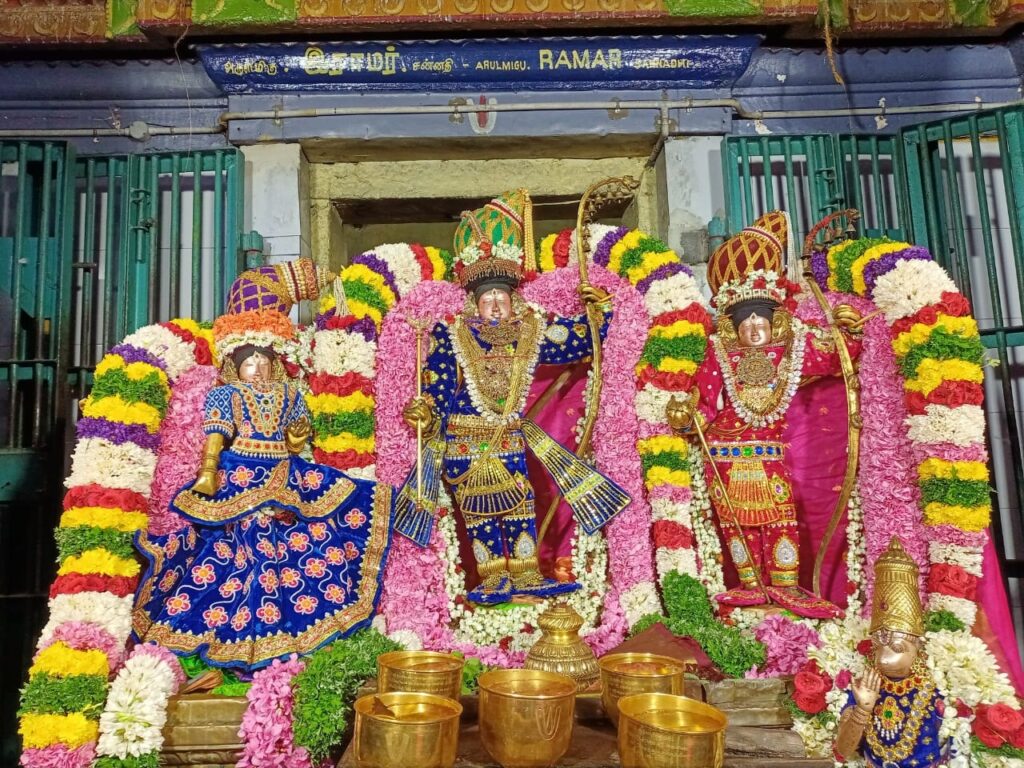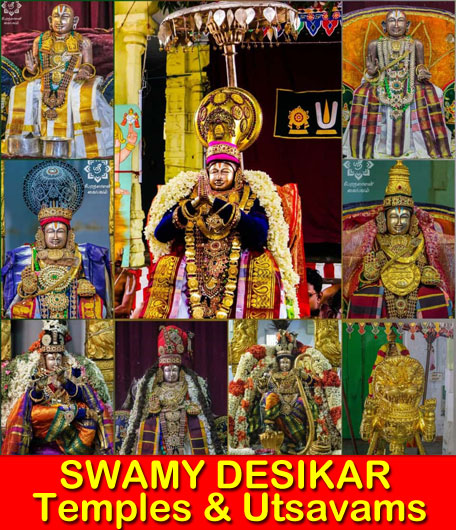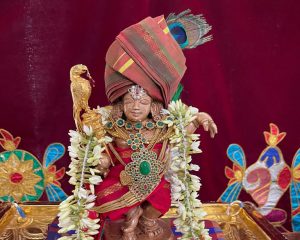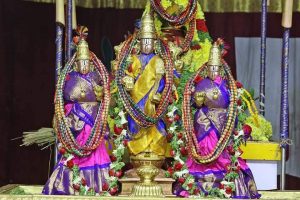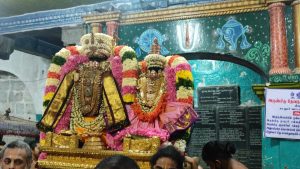With Ramanavami celebration in progress, obviously, the enthusiasm of the devotees is amply evident. In North India, it is more apparent, as the people greet each other with “Jairamjikij” on the unique occasion. It is also being perceived that discourses and debates on Ramayanam takes place in a healthy manner and in a congenial atmosphere, as the people are not sick and tired of hearing the virtues of the great epic, as they are under the impression that listening to Ramayana at regular intervals would augur well for their families and solace to the entire society in the long-run. Even the school and college students are fond of associating themselves in the discourses of the elderly scholars.
The devotees fondly remember the renowned authors, ‘Valmiki’, ‘Kambar’ and ‘Tulsidas’, besides, the elderly statesman Rajaji’s “Chakravarthi Thirumagan’ and a few other writers on Ramayanam. It is pertinent to note that Vedas and Sastras offer the people significant advices to serve for welfare of the nation.They also plead with them to rise to the occasion as a master, friend and wife. For instance, master Veda preaches the peope, ‘Satyam Vadha’, i.e. to speak the truth. A similar recommendation is offered in the form of a story by Srimad Ramayana, in its own inimitable style, as though from the point of view of a friend or wife.
It is important to note Dasaratha’s relevant utterances that his son Sri Rama should reside in the forest for 14 years after the promise he made to his second wife, Kaikeyi. It may be recalled that valiant efforts by sages and the people who worked with Dasaratha to clear his misconception in sending his son to the forest ended in a dismal failure, as Rama turned down the requests from his well-wishers and made it crystal-clear that he would abide by the decision taken by his beloved father. “I never lied in the past and will also not do it in the future.”(Anrithm noktha-purvam mey Na cha vakshye kadachana) asserted Rama with utmost clarity and conviction.
Veda also orders like a mentor to their disciples, ‘pithru devo bhava’(consider father as the god himself). It may be recalled that Srimad Ramayanam teaches the same through its story. Sri Rama regarded his father as the Lord himself and conducted himself accordingly. He spent 14 years in the forest as per Dasaratha’s desire, passed on to him by Kaikeyi. This act of his is called with reverence as, ‘Pithru-vakya-paripaaalanam’. Veda commands, ‘Mathru devo bhava’(consider Mother as the Lord). Srimad Ramayana narrates the same at length through Lord Rama. Kaikeyi informed Rama that his father wanted him to leave Ayodhya and lead his life in the forest for about 14 years. Rama without batting an eyelid replied her that he would obey without hesitation, even if the decision was taken, based on her whims and fancies.
Kaikeyi was not his own mother, but Rama did not fail to respect her and complied with her order. When his brother Bharathan differed with his mother Kaikeyi’s abrupt decision and met him in the forest with tears rolling down on his cheeks, Rama urged him not to get perturbed or angry with his mother over the issue and instead serve her with utmost devotion like an obedient son. (“Maathram raksha kaikeyeem, maa rosham kuru tamprathi”). Our Seers have time and again reiterated the harsh reality that Srimad Ramayana, similar to Vedas has initiated measures in alleviating the ventilated grievances of the people from the after-effects of bad deeds.
The devotees discuss and argue vociferously the pros and cons of the situation over the Lord Rama’s elimination of ‘Vali’ without his knowledge to please his younger brother, ‘Sukrivan’. Some of them would take the side of Rajaji’s Ramayana that condemned Rama’s decision, whereas a section of devotees would defend Kambar and Tulsidas for leaving the benefit of doubt to Rama. It is interesting to note that some devotees would apportion the blame on Sukriva, whereas a large number of people would defend him for the simple reason that without his majestic presence, Rama would not have found his disciple, Lord ‘Hanuman’, as the subsequent events in Ramayanam proved beyond doubt that Hanuman was indispensable to Rama. Even today, when the people do not find time to visit Ram temples, they make it a point of compensating it by offering their worship at near-by Hanuman temples.
The following is a sloka in the first chapter of Valmiki Ramayana:
Idam pavithram paapagnam Panyam vedal: Ca Sammitham Ya: Pateth Ramacharitram Sarvapaapai: Pramchyathe (He who reads the life –story of Rama, which being comparable to the Veda, purifies the heart, dispels all sins and brings great merit, will be freed from sin).There is an interesting derivation by learning scholars, establishing that Ramayana is on par with Vedas. The first letters of four Vedas are Ra from Rig Veda, Ma from Sama Veda, Ya from Yajur Veda and Na from Atharavana Veda were prepared by Valmiki and the name of his epic is formed as Ramayana. The great sage Valmiki was ordained to write Ramayana. He was initiated into this endeavour by Narada and blessed by four-faced Brahma (Kuru Rama – Katham Punyam). It is being advised that for these reasons this epic must be venerated.
It is worthwhile to remember that Swamy Desikan had declared that Srimad Ramayana must be treated as “Saranagathi Sastra”. It is high time for the people, who offer worship to the Almighty to perceive the concept and glory of Saranagathi and the endless compassion of Lord Rama, the incarnation of Sriman Narayana, with redoubled vigour.
K.V. Venugopal


